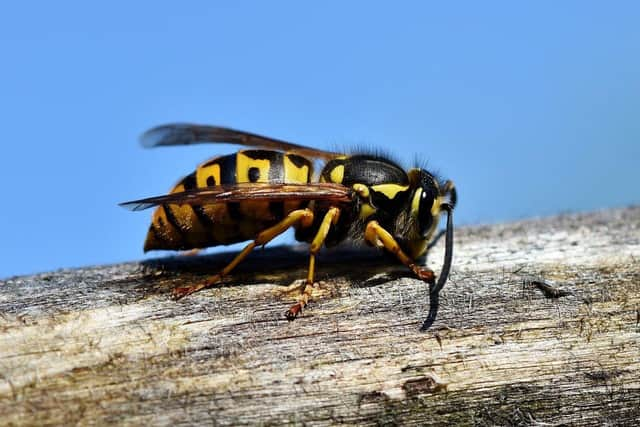What time of year and month do wasps die in Doncaster?
and live on Freeview channel 276
Let’s be frank with one another – there’s one thing we all hate about the hot weather. No, it’s not the sunburns, the holiday snaps or the abundance of fat, topless men wandering around in broad daylight – it’s the wasps.
While yellow jacket wasps do clean up other pests and contribute to pollination, most us will be glad to see the back of them for this year. That goes especially for anyone who suffers from Spheksophobia (a clinical fear of wasps) or has an allergy to wasp stings.
Advertisement
Hide AdAdvertisement
Hide AdGenerally, “wasp season” lasts from around mid-March to late August. In September, wasps will begin to die off, with their numbers dropping more rapidly as the months progress. By November and December, the wasps should be virtually all gone until March arrives in 2022.


As their life cycle nears its end, wasps become noticeably more aggressive, due to their limited food resources in the cold weather and their instinct to protect the hive. Because food is scarce for them in the winter, they’re more likely to encroach on human territories in search of sustenance.
Wasps die off around this time of year not due to the lowered temperature, but more so because of the lack of food. With flowering plants and insects being generally rarer sights in the winter months, there’s a lot less for them to eat.
As such, the workers, grubs and queens will die, but some of the queens may survive through hibernation. Even still, many of these will also be killed by larger spiders and other potential predators as they try to see out the winter.
Advertisement
Hide AdAdvertisement
Hide AdHowever, there’s also a real possibility that a queen wasp may decide to use your home as a place to hibernate through the winter – if they’re successful and set up a nest, you could end up with a wasp infestation.
If this occurs, by no means should you try to tackle the problem yourself. When a wasp is killed, its corpse releases a chemical into the air that instructs any other wasps in the vicinity to become aggressive. If this happens, you’re extremely likely to be stung, as is anyone else in the area.
Furthermore, wasps will also release an airborne chemical when they sting someone (or something), signalling their colony to attack. This is a natural defence mechanism that is used to protect their nests when under attack from things such as black bears or (funnily enough) humans.
Wasp stings not only hurt, but they can also be dangerous to your health if stung too many times over a short period - especially if you’re allergic to them.
Advertisement
Hide AdAdvertisement
Hide AdAs such, you should always hire a professional exterminator or pest control unit to deal with the problem. They know exactly what they’re doing and have the correct equipment to deal with wasps, so you need not expose yourself to any sort of risk.